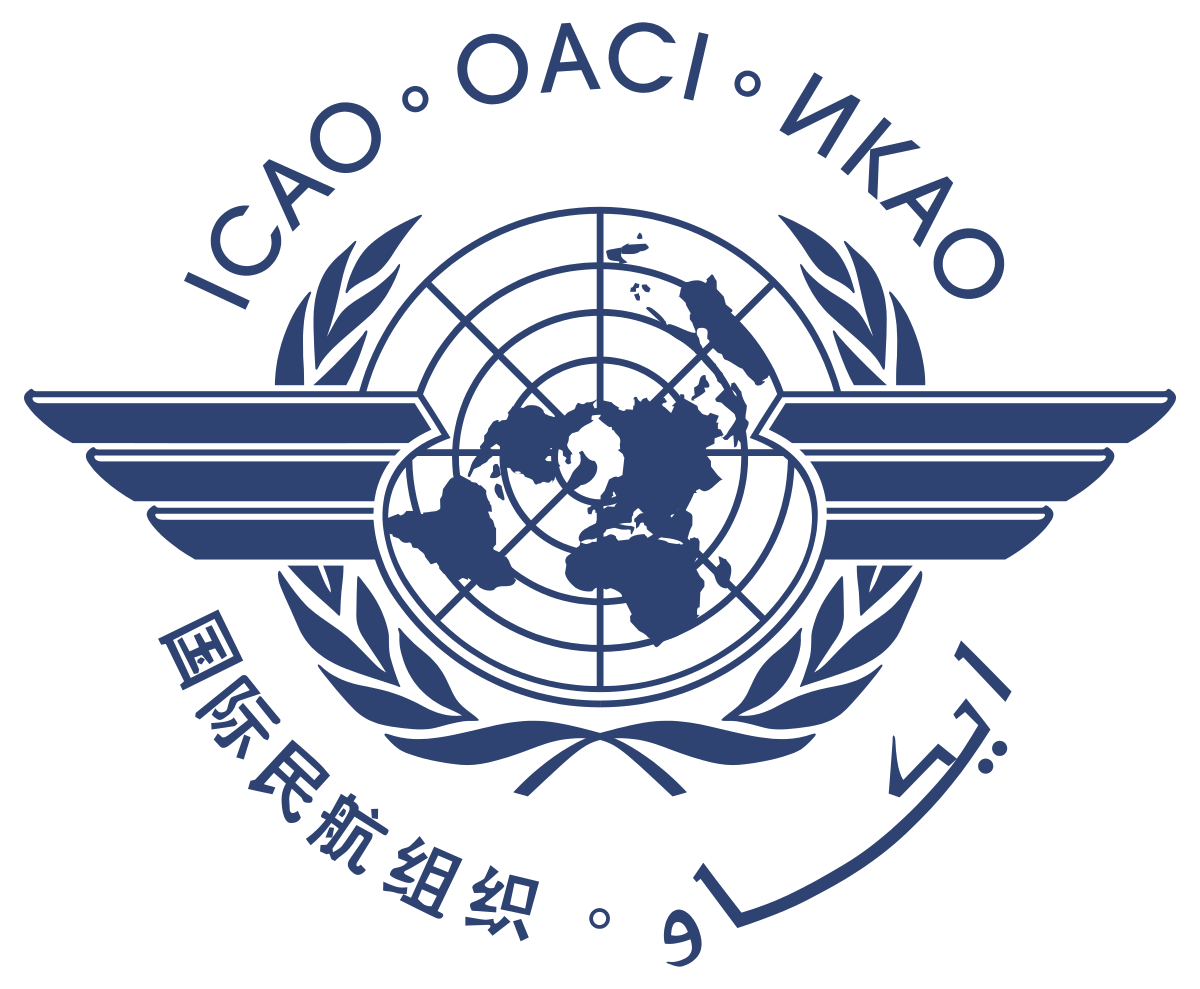
International Civil Aviation Organization

About ICAO
The International Civil Aviation Organization (ICAO) is a specialized agency of the United Nations. It changes the principles and techniques of international air navigation and fosters the planning and development of international air transport to ensure safe and orderly growth.

Vision and Mission
Vision:
Achieve the sustainable growth of the global civil aviation system.
Mission:
To serve as the global forum of States for international civil aviation. ICAO develops policies and Standards, undertakes compliance audits, performs studies and analyses, provides assistance and builds aviation capacity through many other activities and the cooperation of its Member States and stakeholders.

ICAO: Frequently Asked Questions
Standards and rule making topics
1How does ICAO develop Standards and Procedures for International Civil Aviation?
The development of international civil aviation Standards and Recommended Practices (SARPs) and Procedures for Air Navigation Services (PANS) follows a structured, transparent and multi-staged process – often known as the ICAO ‘amendment process’ or ‘standards-making process’.
This involves a number of technical and non-technical review bodies, which are either within or closely associated with ICAO (working groups, task forces, committees, panels, etc.), and which are generally composed of State and industry Subject Matter Experts (SMEs).
New items are added to the ICAO Work Programme after formal reviews by ICAO’s Secretariat, Air Navigation Commission (ANC: the main technical advisory body to the ICAO Council) and the 36-State ICAO Governing Council.
Specific matters to be assessed are derived from multiple sources, including accident investigation report recommendations, ICAO Assemblies, regional bodies, individual States, and industry.
Once an expert group has submitted its recommendations on a specific work programme item, these are reviewed by the ANC and then transmitted to States and industry for review. The ANC considers all relevant feedback and fine-tunes its final recommendation for the ICAO Council’s ultimate consideration and possible adoption. Final ANC recommendations would also include full impact assessments and implementation plans.
2How long does it take for States to develop and agree on a new civil aviation Standard through ICAO?
Typically, it takes approximately two years for an initial proposal for new or improved Standards and Recommended Practices (SARPs) or Procedures for Air Navigation Services (PANs) to be formally adopted or approved for inclusion in a Convention Annex or a PANS manual.
Occasionally, this timescale can be expanded or compressed depending on the nature and priority of the proposal under consideration.
Throughout the process, all concerned may review all aspects of the context and actions being considered, and Council at its discretion may also recommend certain matters for consideration by the full ICAO Assembly (held once every three years with all 193 ICAO Member States in attendance).
It is in this manner that over 12,000 SARPs and PANS have been developed and amended over the last seven decades, supporting a harmonized and truly worldwide civil aviation network as it safely and efficiently fulfils its rapid global connectivity mandate for states, businesses and societies.
3What is the difference between the terms ‘Adopted’, ‘effective’ and ‘applicable’, as regards ICAO Standards and Recommended Practices?
‘Adopted’, ‘effective’ and ‘applicable’ are all terms which refer to amendments to the Annexes to the Chicago Convention which are managed through ICAO.
They specifically regard new or adjusted civil aviation Standards and Recommended Practices agreed to by States through ICAO, and how States and operators must implement them, as follows:
Adoption date
This is the actual date that the amendment is adopted by the ICAO Council’s 36 Member States. Normally this occurs in March of a given calendar year and the Council is responsible for ICAO’s Governance decisions while our full Assembly (every three years) in not in session.
Effective date
A common effective date for all amendments adopted by Council is set as four months after the last day of the Council session when the adoption took place. A standard Council session normally takes four weeks.
The effective date is the date by which States must advise ICAO that they do not approve the amendment. If more than 50 per cent of States indicate disapproval, the amendment does not become effective, but this has not yet happened in the over 70 years that ICAO has been supporting global civil aviation.
Applicability date
This is usually in November (eight months after adoption and approximately four months after the effective date) and is based on the November AIRAC* date.
By this date States should be applying the amendment unless they have notified ICAO of differences between their regulations and the ICAO Standards in the amendment. The deadline to notify differences is one month before the applicability date.
* AIRAC stands for Aeronautical Information Regulation And Control and stems from Annex 15 - Aeronautical Information Services (AIS). It defines a series of common dates and an associated standard aeronautical information publication procedure for States.
Customer service topics
1If I receive poor service from my airline or airport, can ICAO help?
ICAO, as a specialized agency of the United Nations for international civil aviation, helps States to cooperate together in support of the safe, secure and efficient operation of the global air transport network.
ICAO has no authority to assess, act, or otherwise participate in complaints relating to the transport of passengers, cargo or mail by airlines, including those matters relating to lost or stolen baggage, flight rescheduling, unruly passengers and other perceived safety or security risks, etc.
Any issues or dissatisfaction which customers may encounter must be resolved directly with the airline or airport organizations in question, or brought to the attention of the civil aviation authority in the government under which the airline or airport operates.
Depending on their specific circumstances, customers may also wish to seek advice from a suitably qualified legal practitioner or consumer advocacy group, in order to determine their rights or avenues of redress, if any, in any given case.
2What do I need to know before buying or operating a "drone" (unmanned aircraft)?
Please always contact your Civil Aviation Authority for their UAS guidelines and regulations.
ICAO does offer a variety of guidance resources to consumers, operators and regulators of unmanned aircraft (UAS, informally known as “drones”) through our UAS Toolkit.
In all circumstances, you are required to operate the UAS safely. In addition, if you use the UAS for work or research, or if it weighs more than 25 kg (55 lbs), most States require you to obtain a permit before operating it.
Convention compliance and dispute topics
1If my State is being negligent in its responsibilities under the Chicago Convention, can ICAO reprimand or penalize it in some manner?
Only national governments can consider holding other countries to account.
That accountability normally takes the form of country-to-country sanctions which are assessed and agreed to through higher-level multilateral platforms than ICAO, for example the UN General Assembly or UN Security Council.
The international aviation convention which established ICAO prioritizes standardization and cooperation among its 193 member countries, as negotiated and endorsed through the assemblies, committees, working groups, etc., which governments mandate and budget our secretariat to organize for them.
2Which specific Chicago Convention Articles apply when a State doesn’t follow ICAO Standards?
Settlement of disputes under Chapter XVIII of the Chicago Convention
Chapter XVIII of the Convention on International Civil Aviation (Chicago Convention) entrusts the ICAO Council with dispute settlement functions in case of any disagreement between two or more contracting States relating to the interpretation or application of the said Convention and its Annexes cannot be settled by negotiation. The provisions of Chapter XVIII of said Convention are reproduced below.
Article 84 - Settlement of disputes
If any disagreement between two or more contracting States relating to the interpretation or application of this Convention and its Annexes cannot be settled by negotiation, it shall, on the application of any State concerned in the disagreement, be decided by the Council. No member of the Council shall vote in the consideration by the Council of any dispute to which it is a party. Any contracting State may, subject to Article 85, appeal from the decision of the Council to an ad hoc arbitral tribunal agreed upon with the other parties to the dispute or to the Permanent Court of International Justice. Any such appeal shall be notified to the Council within sixty days of receipt of notification of the decision of the Council.
Article 85 - Arbitration procedure
If any contracting State party to a dispute in which the decision of the Council is under appeal has not accepted the Statute of the Permanent Court of International Justice and the contracting States parties to the dispute cannot agree on the choice of the arbitral tribunal, each of the contracting States parties to the dispute shall name a single arbitrator who shall name an umpire.
If either contracting State party to the dispute fails to name an arbitrator within a period of three months from the date of the appeal, an arbitrator shall be named on behalf of that State by the President of the Council from a list of qualified and available persons maintained by the Council. If, within thirty days, the arbitrators cannot agree on an umpire, the President of the Council shall designate an umpire from the list previously referred to. The arbitrators and the umpire shall then jointly constitute an arbitral tribunal. Any arbitral tribunal established under this or the preceding Article shall settle its own procedure and give its decisions by majority vote, provided that the Council may determine procedural questions in the event of any delay which in the opinion of the Council is excessive.
Article 86 - Appeals
Unless the Council decides otherwise any decision by the Council on whether an international airline is operating in conformity with the provisions of this Convention shall remain in effect unless reversed on appeal. On any other matter, decisions of the Council shall, if appealed from, be suspended until the appeal is decided. The decisions of the Permanent Court of International Justice and of an arbitral tribunal shall be final and binding.
Article 87 - Penalty for non-conformity of airline
Each contracting State undertakes not to allow the operation of an airline of a contracting State through the airspace above its territory if the Council has decided that the airline concerned is not conforming to a final decision rendered in accordance with the previous Article.
Article 88 - Penalty for non-conformity by State
The Assembly shall suspend the voting power in the Assembly and in the Council of any contracting State that is found in default under the provisions of this Chapter.
3Can States sanction other States through ICAO?
Article 88 of the Convention provides (in the framework of dedicated dispute settlement between Member States) that States participating in an ICAO Assembly may suspend the voting power in the Assembly and Council of any Member State found in default of its responsibilities.
Under certain specified circumstances concerning airlines, also within the dispute settlement mechanism, “Each contracting State undertakes not to allow the operation of an airline of a contracting State through the airspace above its territory if the Council has decided that the airline concerned is not conforming to a final decision rendered in accordance with the previous Article” (Article 87).
Audit related
1What does ICAO audit?
ICAO audits the aviation safety and aviation security oversight capacities of its 193 Member States. In the Safety domain these are carried out under our Universal Safety Oversight Audit Programme (USOAP), while in the security domain we operate a similar Universal Security Audit Programme (USAP).
It is important to recognize that these audits do not cover airlines, airports or other industry operators. Rather they are restricted to only the legislation, resources and other capacities which State governments establish in order to effectively implement ICAO’s Standards and Recommended Practices (SARPs) in each area.
Aggregated USOAP results may be reviewed interactively by the public on ICAO’s website. Security audit results are confidential and are not made public. They are, however, shared with other Member States through suitably confidential mechanisms.
2What ramifications may arise when a State has poor ICAO audit results?
By signing the Memorandum of Understanding with ICAO on safety oversight audits, ICAO Member States accept that ICAO will publish their audit results in addition to red flagging any significant safety concerns which are not rapidly addressed.
Otherwise the intention of the USOAP programme is to help identify areas where ICAO can assist or coordinate assistance for States, in line with our mission and role.
Security audit information is confidential given that the publication of related gaps or vulnerabilities holds the potential to provide planning or other benefits to bad actors.
Flight Routes and Risks
1Does ICAO approve world flight routes? If not, how are these agreed?
While ICAO doesn’t ‘approve’ world flight routes for international air traffic, it is instrumental to facilitating the cooperation and information needed to do so.
Indeed, ICAO’s seven Regional Offices emerged directly from the early Regional Air Navigation (RAN) meetings which world powers carried out post WWII, under the newly-drafted Convention on International Civil Aviation, in order to transition the many military air transport facilities and routes which had been established in the previous years to civilian use.
The required analysis and decisions for new or amended flight routes are undertaken by States through the Planning and Implementation Regional Groups (PIRGs) which ICAO has established in every world Region specifically for this purpose.
2Why does ICAO permit civilian aircraft to fly routes which carry them through conflict zones or other dangerous areas?
Sovereign States, and not ICAO, are suitably responsible for advising other States and aircraft operators of any risks to civil aviation safety or security which may arise from activities in their sovereign territories or airspace.
States are similarly responsible for restricting aircraft operations, whether completely or to various pre-determined flight levels, if the potential risks appear to be especially severe.
This framework applies to ash clouds due to volcanic eruptions, conflict zones, missile tests, or any other activity under a State’s sovereign responsibility which has the potential to pose safety risks to international civilian air traffic.
You may learn more about ICAO’s requirements and guidance to assist States, operators and ANSPs regarding conflict zone risks in the following guidance material:
Doc 10084, Risk Assessment Manual for Civil Aircraft Operations Over or Near Conflict Zones
3What can ICAO do to prevent States from conducting missile tests or other activities which may endanger civilian air traffic?
Sovereign States, and not ICAO, are suitably responsible for advising other States and aircraft operators of any risks to civil aviation safety or security which may arise from activities in their sovereign territories or airspace. States are similarly responsible for restricting aircraft operations over their territories, whether completely or to various pre-determined flight levels, depending on the severity of the risk.
In situations when a State may be planning a missile test or other type of aerial operation which may pose dangers to local civilian flights, it is its responsibility to notify adjacent States and locally-operating airlines concerning the precise nature of the risk, and the specific flight areas which may be impacted.
In certain circumstances, for instance where a State wishing to share risk information may not have effective diplomatic relations with its adjacent States, the State seeking to promulgate the risk details may request that ICAO undertakes the required information sharing on its behalf.
